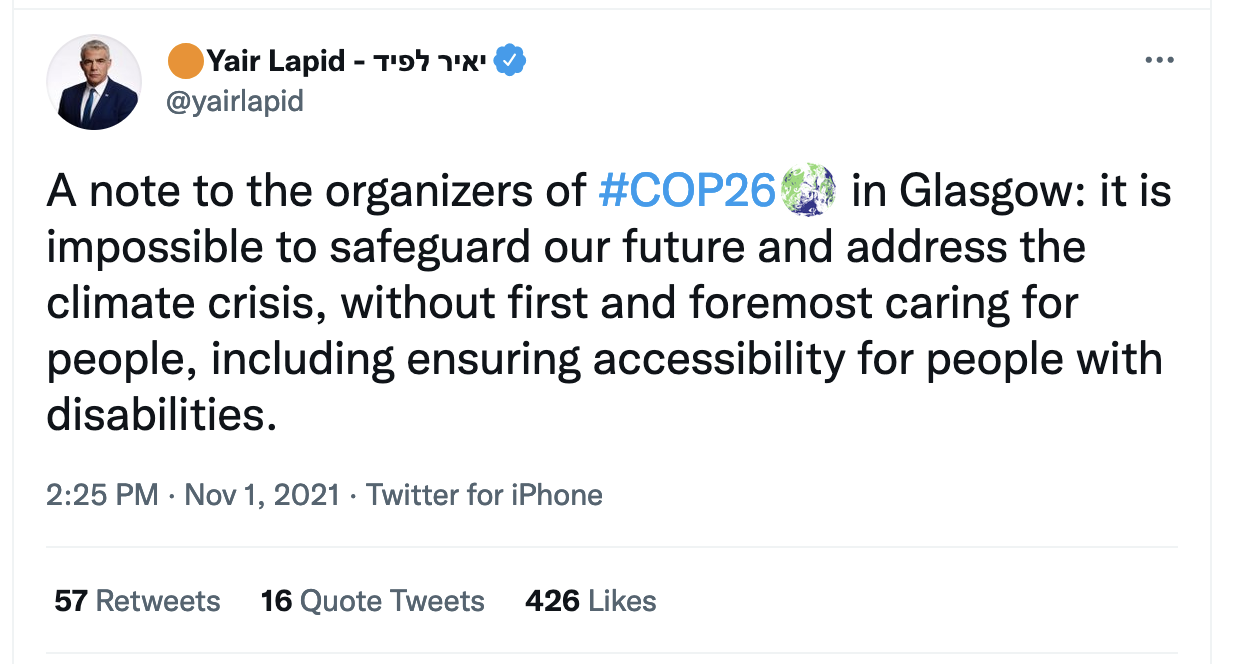This week the U.K. Prime Minister Boris Johnson apologized to an Israeli minister, Karine Elharrar, who was unable to access the United Nations Climate Change Conference in her wheelchair.
While it’s unlikely that accessibility problems at your events will rise to the level of an international incident, it’s not a leap to imagine negative press and blowback on social media. And the climate conference, known as COP26, got plenty of both.
On Monday, Elharrar waited for two hours outside a venue at the Scottish Event Campus in Glasgow that was only accessible by walking or a shuttle that didn’t accommodate wheelchairs. Eventually, she returned to her hotel 50 miles away.
The access issue was cleared up by the next day, and described as a “genuine mistake,” by a COP26 spokesperson in this BBC article—but not before generating global news and a volume of tweets, like this one from Israeli Foreign Minister Yair Lapid: 
The COP26 incident is a cautionary tale for all meeting organizers and venues. Your hotel may be accessible, but what about the dinner venue, teambuilding activity, or reception space? With so many planners eager to use outdoor environments during the pandemic, have accessibility concerns taken a back seat?
For a refresher on how to be sure the facilities you choose can be navigated by all attendees, check out these Americans with Disabilities Act checklists, or read MeetingsNet’s Welcome Guide: Tools and Ideas for Inclusive Meetings, which includes the five questions that planners should ask during the registration process to get a full picture of what your attendees need in order to fully participate.





